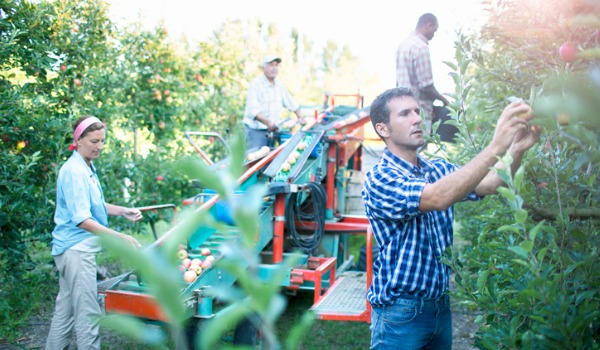How peer-to-peer recognition programs boost motivation and productivity
Peer-to-peer recognition programs help build a sense of belonging and a positive place in a business. In turn, that leads to more motivated staff and better productivity.
A recent study from Harvard Business School (HSB) put this assertion to the test with a group of fruit pickers.
Their results back up what we tell all our clients. Recognising your staff, particularly peer-to-peer recognition, leads to happier and more productive employees.
How the study worked
HBS researched fruit harvesting staff in the Western United States. The work is relatively lonely. There’s minimal social interaction, and few chances for an employee to hear positive feedback from peers.
A sub-group of fruit pickers were asked to watched a short video. It was presented by colleague from their company, detailing how the work they do has a positive impact on the rest of the business.
The video was deliberately inclusive in tone. It focused heavily on how quality work benefited the company. Not just the company’s success, but how they affected the work of employees further down the production queue.
The employees exposed to positive expressions about their work were more motivated and did more work.
The motivating effect showed up again in a similar lab study too. Internal recognition and affirmation had a positive effect on employee motivation and productivity.
The key conclusion
The most important line in the study is this:
“Contact with an internal beneficiary…yielded a persistent increase in productivity.”
As in, when a colleague took the time to make an employee feel good about their work and recognise its value, they did work compared to a control group.
Their peer-to-peer recognition program boosted output.
Why peer-to-peer recognition programs work
 Our need to feel welcome, and our need to belong, are fundamental parts of the human experience. In the distant past it was more than just a good feeling, it was about survival.
Our need to feel welcome, and our need to belong, are fundamental parts of the human experience. In the distant past it was more than just a good feeling, it was about survival.
Being part of a group increased our chances of survival. As a result, humans are bred to seek belonging.
How humans live has changed. But how we interact is still fueled by those most basic needs: We need positive interactions and we need to feel we have a valued place in a group.
Being recognised by our peers gives us that sensation. In turn, we feel more compelled to repeat the behaviour that gets recognised.
What this means for your business’ peer-to-peer recognition program
Recognition works, and feeling included matters. We could have told you that without an ambitious study like this, but it’s nice to see the evidence in black and white.
The take-home for your business is that you need to make sure your employees feel included and valuable among their colleagues.
Even if you don’t want to roll out a peer-to-peer recognition scheme, staff need to feel included and valuable. They’ll feel better about working for you, and work harder in turn.
Alongside other studies, like this one showing a link between employee recognition and improvements in mental and physical health, the benefits of prioritising recognition are clear.
It’s something you need to embrace and utilise for the health of your company and your employees.


 Improving a co-worker’s mental health is a noticeable result of taking the time to thank a colleague.
Improving a co-worker’s mental health is a noticeable result of taking the time to thank a colleague.